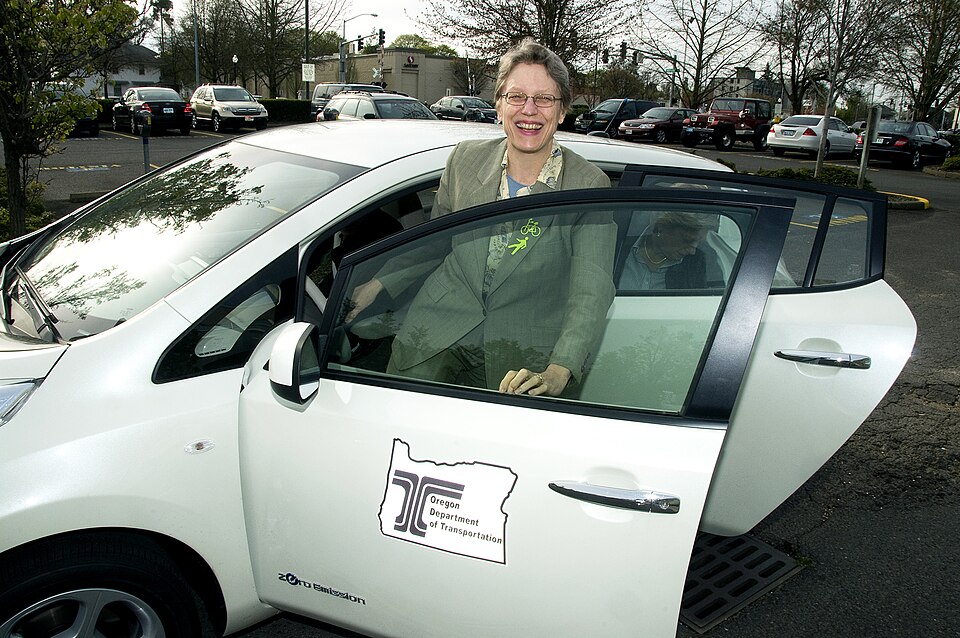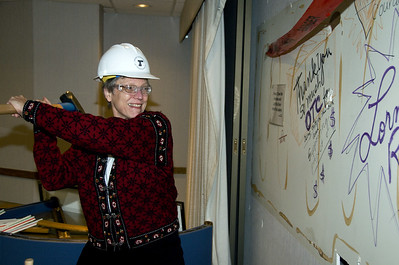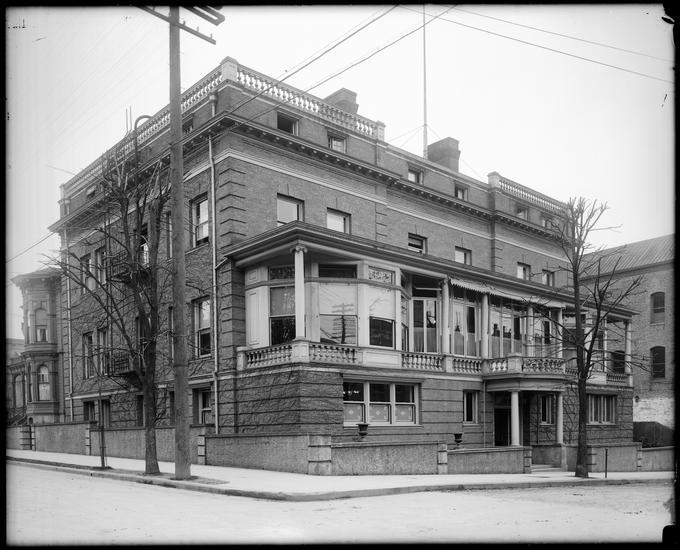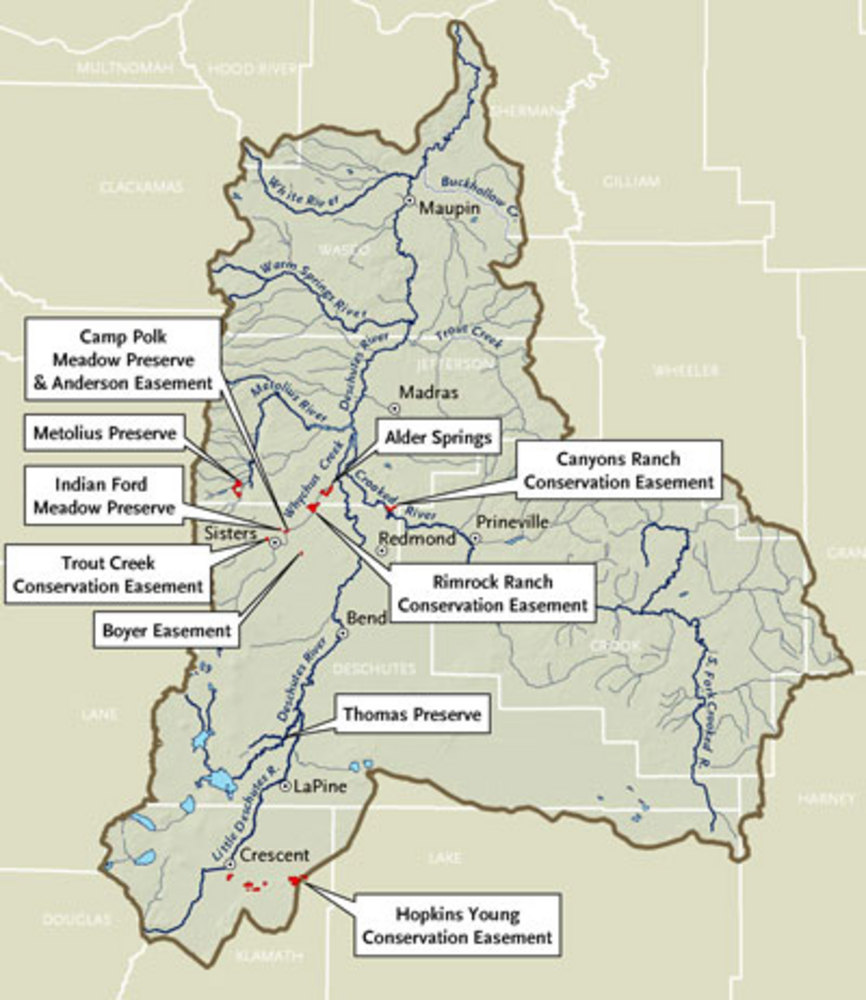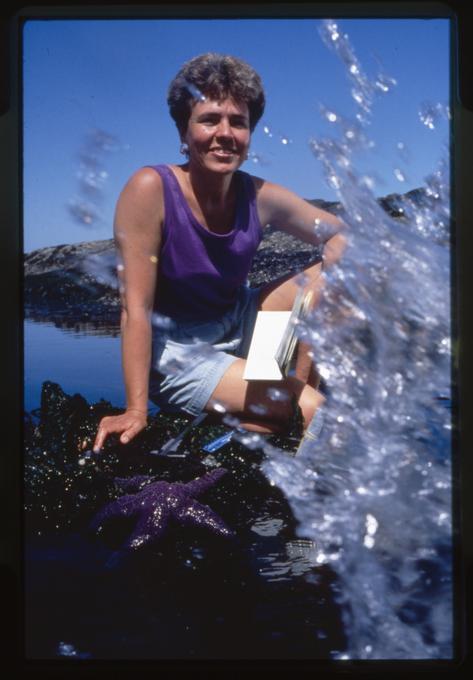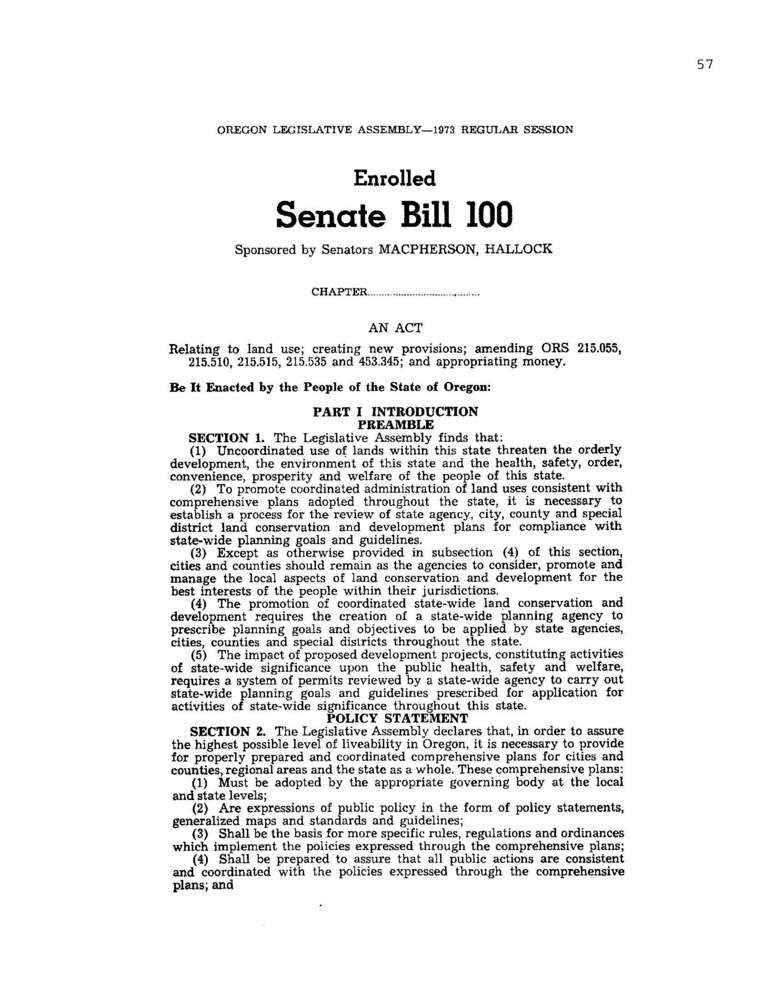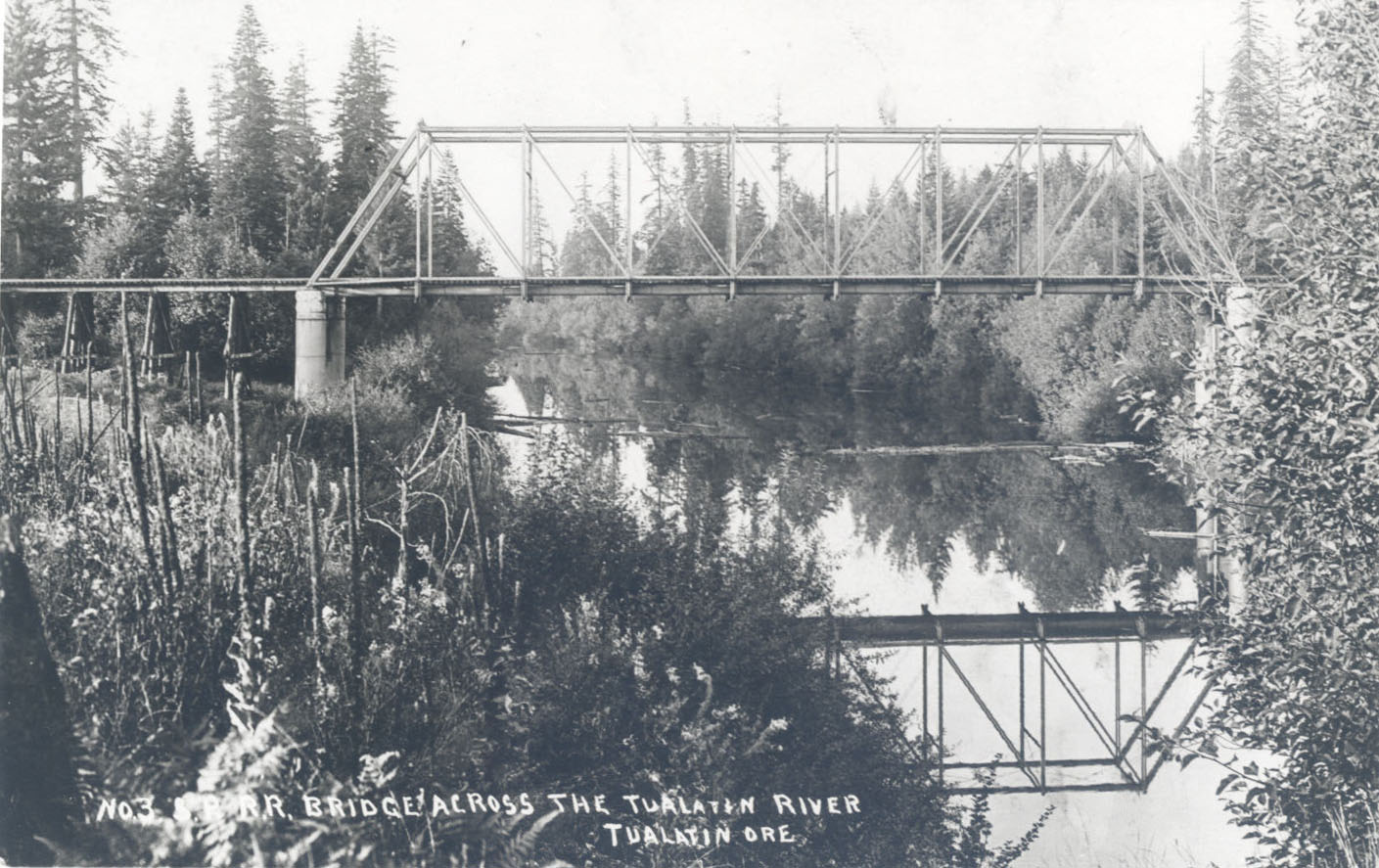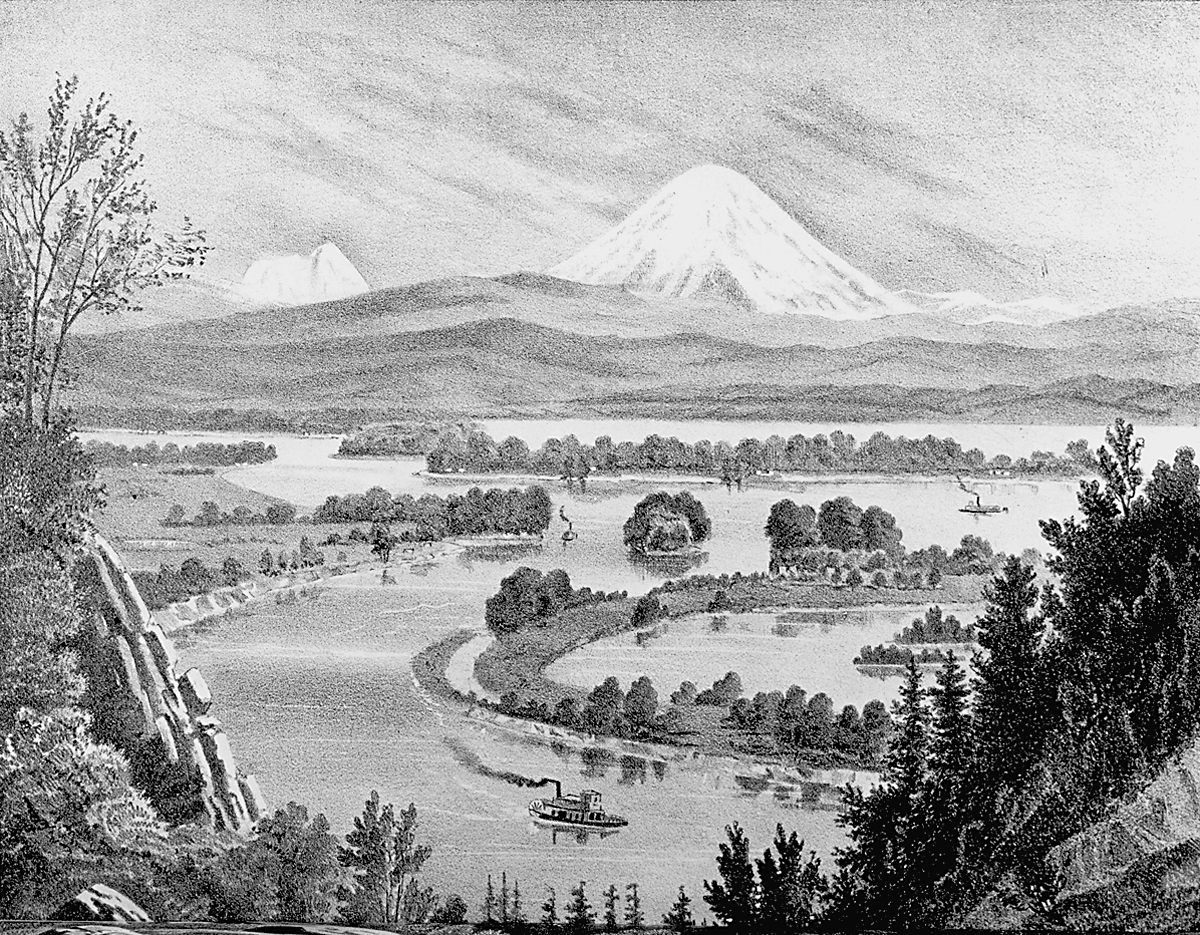Gail Achterman, a fourth-generation Oregonian, was one of the state’s leading experts in natural resources, transportation, and environmental law and policy. During a career that spanned over four decades, she worked in both the private and public sectors to direct and litigate the use of public lands and resources, principally as one of the earliest directors of the Institute for Natural Resources and through her leadership on the Oregon Transportation Commission.
Achterman was born in Portland on August 1, 1949. She graduated from South Salem High and received her B.A. degree in economics with honors from Stanford University in 1971. She went on to earn law and master's degrees in Natural Resource Policy and Management from the University of Michigan in 1974 and 1975.
After a few years as the Attorney Advisor and Special Assistant for the Solicitor for the U.S. Department of the Interior in Washington, D.C., Achterman returned to Oregon in 1978 and joined the law firm that became Stoel Rives, LLP, where she became a partner. She practiced natural resource and environmental law there and worked public land and resource acquisition cases. She married Charles McGinnis in 1980. Achterman became a member of the Oregon Women’s Forum—an organization dedicated to the preservation of the Columbia River Gorge—and helped draft the landmark Columbia River Gorge National Scenic Area Act, passed in 1986. Achterman left Stoel Rives in 1987 to work for Governor Neil Goldschmidt as an assistant in natural resources, where she co-authored the Groundwater Protection Act and helped reform the Oregon Forest Practices Act to restrict clearcutting and strengthen endangered species protections. She returned to private practice with Stoel Rives from 1991 to 2000.
In 2000, Achterman became the executive director of the Deschutes River Conservancy (DRC), a nonprofit in Bend founded in 1996 by the Confederated Tribes of Warm Springs, the Environmental Defense Fund, and local irrigation districts. Under her direction, the DRC expanded its mission to restore streamflow and improve water quality by implementing instream leasing (a voluntary suspension of water rights by a lessee), purchasing permanent water rights, and by forming groundwater mitigation and water banks, which allow holders of water rights to transfer or “bank” units of water for later use that have been restored through mitigation projects.
Achterman left the DRC in 2003 to serve on the Governor’s Task Force on Global Climate Change and to become the director of the Institute for Natural Resources (INR), an agency created by the state legislature in 2001 to "serve as a clearinghouse for scientifically based natural resources information.” Achterman wrote in her diaries that her early days at INR were chaotic, as she managed the many natural resources issues in Oregon, including forest fire mitigation, salmon anchor habitat strategies, and the fallout from Ballot Measure 37—passed by voters in 2004 to compensate property owners for environmental and land use regulations. Achterman consulted with state agencies, the federal government, and state universities to organize and facilitate the first-ever meeting between natural resource agency heads, university deans, and research institute directors, held at Oregon State University in 2009.
Achterman’s interest in the intersection of natural resources and transportation management led to an early INR project addressing the controversies related to aggregate mining in Oregon, with much of the tension focused on the tradeoffs between high-value soils for farming and the value of mining deposits found beneath the farmlands. This was such a knotty problem that the Oregon Department of Transportation (ODOT) recruited Elaine Hallmark, considered the best mediator in the state at the time, and Greg Wolf, policy advisor for Governor Kitzhaber. The mediation project resulted in a mutual acknowledgment that high-quality soils for farmland should be protected by focusing aggregate mining activity to lower lower-quality soils and non-farm land.
During her time at INR, Achterman served as a governor-appointed commissioner to the Oregon Transportation Commission and became chair in 2007. She stepped down when she retired from INR in 2011, at which time she was given the DeFazio Transportation Hall of Fame Award by the Oregon Transportation Research Education Center. Achterman’s influence is credited with making the ODOT a national leader in the development and application of integrated transportation.
Achterman died in January 2012 of pancreatic cancer. On November 14, 2012, the Oregon Transportation Commission formally dedicated the Gail Achterman Commission Room in her honor. Her leadership in the environmental health of the Willamette Basin is memorialized on the 270-acre Gail Achterman Wildlife Area, an intact riparian forest habitat located on the Willamette River near Independence. The Oregon Department of Fish and Wildlife purchased the land with funding from the Willamette Wildlife Mitigation Program in 2014 in part to prevent it from gravel mining; it was dedicated in 2016. The area is accessible only by boat at River Mile 88.5 on the Willamette River Water Trail.
In August 2024, a visitor to the island commented on the Willamette River Water Trail blog: "Camped on the gravel bar here, which worked well. Last camp possibility before turning into the Salem stretch. Gail would have loved this place."
-
![]()
Oregon Transportation Commission Chair Gail Achterman gets behind the wheel of the new zero emission Nissan Leaf, April 19, 2011.
Courtesy Oregon Department of Transportation -
![]()
Commission Chair Gail Achterman readies the hammer, November 8, 2008.
Courtesy Oregon Department of Transportation
Related Entries
-
![Arlington Club]()
Arlington Club
In 1910, the exclusive, all-male Arlington Club built its permanent hom…
-
![Deschutes Land Trust]()
Deschutes Land Trust
The Deschutes Land Trust works cooperatively with landowners to conserv…
-
![Jane Ann Lubchenco (1947–)]()
Jane Ann Lubchenco (1947–)
Jane Lubchenco is an internationally recognized environmental scientist…
-
![Land Conservation and Development Commission (LCDC)]()
Land Conservation and Development Commission (LCDC)
In 1973, Oregon Senate Bill 100 established the Land Conservation and D…
-
![Tualatin Riverkeepers]()
Tualatin Riverkeepers
Tualatin Riverkeepers, a community-based organization that works to pro…
-
Willamette River
The Willamette River and its extensive drainage basin lie in the greate…
Map This on the Oregon History WayFinder
The Oregon History Wayfinder is an interactive map that identifies significant places, people, and events in Oregon history.
Further Reading
Graves, Bill. "Gail Achterman, Portland lawyer and lifelong public servant, dies of cancer at 62." Portland Oregonian, January 29, 2012.
Gail Achterman Papers, 1975-2012. Special Collections and Archives Research Center, Oregon State University Libraries, Eugene.
Achterman, Gail, et al. "Preliminary summary of aggregate mining in Oregon with emphasis in the Willamette River Basin." Institute for Natural Resources. Oregon State University, August 1, 2005.
"Gail Achterman Wildlife Area." Willamette River Water Trail. Willamette RiverKeeper, 2023.

